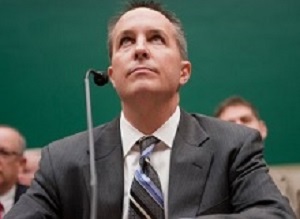 The former head of a Massachusetts pharmacy has been acquitted of murder allegations but convicted of racketeering and other crimes in a meningitis outbreak that was traced to fungus-contaminated drugs and killed 64 people across the country, says a New Zealand Herald report.
The former head of a Massachusetts pharmacy has been acquitted of murder allegations but convicted of racketeering and other crimes in a meningitis outbreak that was traced to fungus-contaminated drugs and killed 64 people across the country, says a New Zealand Herald report.
Prosecutors said Barry Cadden, 50, ran the business in an "extraordinarily dangerous" way by disregarding unsanitary conditions to boost production and make more money. Cadden, president and co-founder of the now-closed New England Compounding Centre, was charged with 25 counts of second-degree murder, conspiracy and other offences under federal racketeering law.
The report says after five days of deliberations, the jury refused to hold Cadden responsible for the deaths and cleared him on the murder counts. He was found guilty of racketeering, conspiracy and fraud and could get a long prison term at sentencing on.
The 2012 outbreak of fungal meningitis and other infections in 20 states was traced by the Centre for Disease Control and Prevention to contaminated injections of medical steroids, given mostly to people with back pain. In addition to those who died, 700 people fell ill. Indiana, Michigan and Tennessee were hit hardest.
The racketeering charge and the 52 counts of fraud carry up to 20 years in prison each, but federal sentencing guidelines typically call for far less than the maximum.
The report says companies charged with selling contaminated drugs often reach settlements with the federal government and agree to pay large fines. The case against the New England Compounding Centre stands apart because of the large number of deaths and serious illnesses and because of evidence that Cadden was aware of the unsanitary conditions, said Eric Christofferson, a former federal prosecutor in Boston.
The scandal threw a spotlight on compounding pharmacies, which differ from ordinary drugstores in that they custom-mix medications and supply them directly to hospitals and doctors. In 2013, in reaction to the outbreak, Congress increased federal oversight of such pharmacies.
According to the report, federal prosecutor Amanda Strachan told the jury during the two-month trial that the deaths and illnesses happened because Cadden "decided to put profits before patients". NECC used expired ingredients and falsified logs to make it look as if the so-called clean rooms had been disinfected, prosecutors said. After the outbreak, regulators found multiple potential sources of contamination, including standing water and mould and bacteria in the air and on workers' gloved fingertips.
Cadden's lawyer, Bruce Singal, told the jury Cadden was not responsible for the deaths and pointed the finger at Glenn Chin, a supervisory pharmacist who ran the clean rooms where drugs were made. Chin has pleaded not guilty and is awaiting trial.
NECC filed for bankruptcy after getting hit with hundreds of lawsuits. NECC and several related companies reached a $200m settlement with victims and their families.
[link url="http://www.nzherald.co.nz/world/news/article.cfm?c_id=2&objectid=11823654"]New Zealand Herald report[/link]
